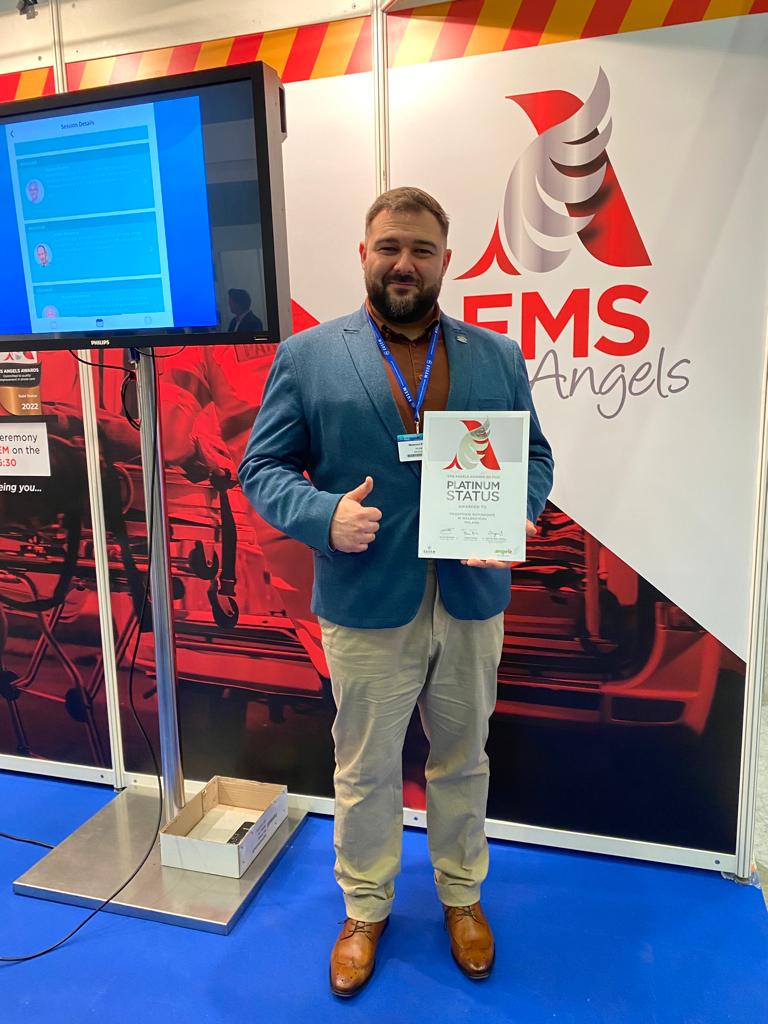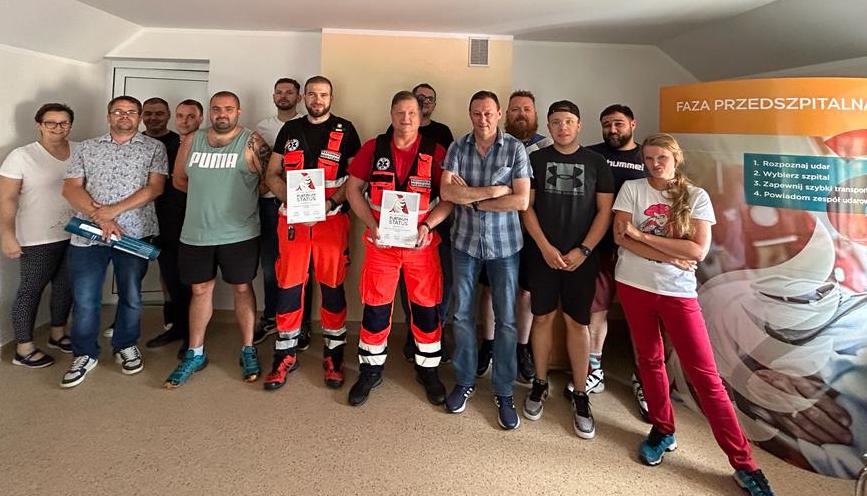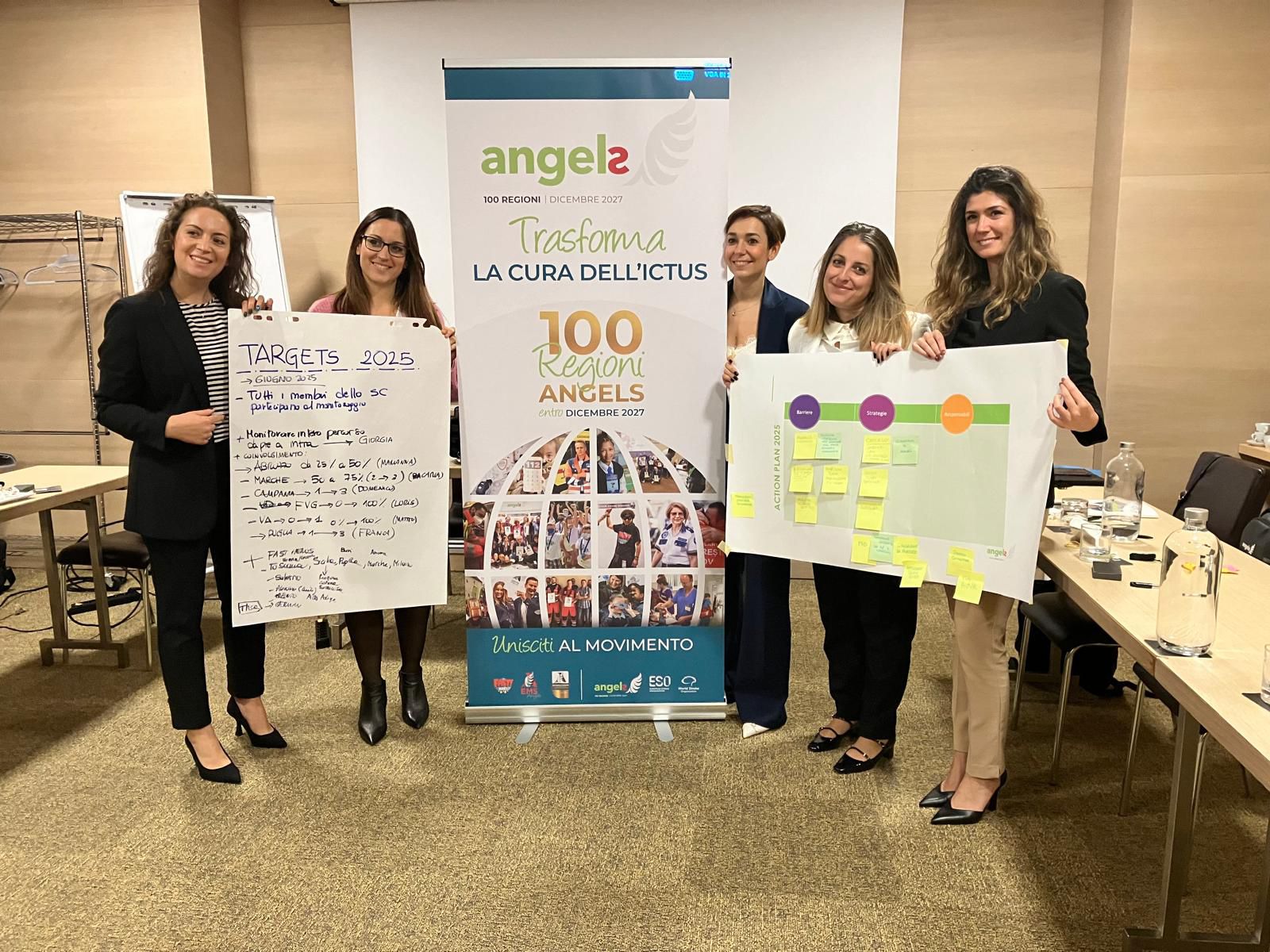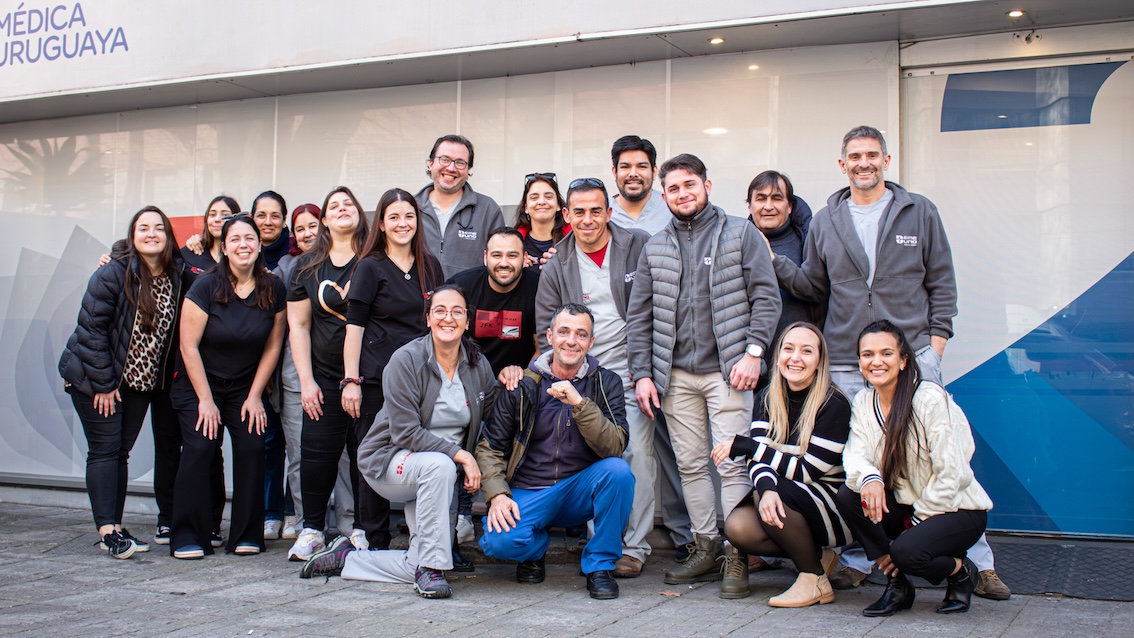
ฉันจบการศึกษาจาก Jan Kochanowski University ใน Kielce สาขาวิชาเอกด้านบริการการแพทย์ฉุกเฉิน ฉันทํางานในบริการรถพยาบาลใน Wałbrzych มาแปดปีแล้ว
การทํางานภายใต้ความเครียดและความเครียดทางจิตสูงเป็นแรงจูงใจให้ฉัน การตัดสินใจอย่างรวดเร็วภายใต้ความกดดันด้านเวลาเป็นอีกปัจจัยหนึ่งที่ทําให้ฉันมีต่องานนี้
จนถึงตอนนี้ สิ่งที่สําคัญที่สุดสําหรับฉันคือการได้รับความรู้และประสบการณ์ การเรียนรู้เกี่ยวกับการวินิจฉัยที่แตกต่างกัน การทําความเข้าใจกลไกทางพยาธิสรีรวิทยาของโรคต่าง ๆ แต่แน่นอนฉันต้องการให้มันใหญ่กว่านี้เสมอ ฉันสนุกกับการมีโอกาสแบ่งปันความรู้และประสบการณ์ของฉันกับเพื่อนร่วมงานที่มีอายุมากกว่าและน้อยกว่าในการฝึกอบรมภายใน และในอนาคตในฐานะผู้สอน ASLS ในโปแลนด์
ตรงกันข้ามกับความเชื่อที่เป็นที่นิยม การเดินทางเพื่อกู้ภัยทางการแพทย์ส่วนใหญ่ในโปแลนด์ไม่เกี่ยวข้องกับหัวใจหยุดเต้น อุบัติเหตุจราจร หัวใจวาย หรือแม้แต่โรคหลอดเลือดสมอง ส่วนใหญ่เรารับมือกับเหตุฉุกเฉินที่เกิดจากความเจ็บป่วยหลายอย่างในผู้ป่วยผู้สูงอายุ ซึ่งต้องอาศัยความรู้อย่างลึกซึ้งในสาขาต่าง ๆ ยา ตั้งแต่นรีเวชวิทยาและสูติศาสตร์ ไปจนถึงยาภายใน การผ่าตัด และจิตเวช
ข้อเท็จจริงที่คุณไม่เคยรู้ว่าจะเกิดอะไรขึ้นในเหตุการณ์ที่เกิดขึ้นคือเหตุผลอีกข้อหนึ่งที่ฉันทํางานในบริการรถพยาบาล คุณไม่มีทางรู้ว่ามีอะไรรอคุณอยู่และแต่ละสถานการณ์ต้องได้รับการจัดการ ตั้งแต่หัวใจหยุดเต้นในเด็กไปจนถึงความผิดปกติทางจิตในผู้ป่วยก้าวร้าว สิ่งนี้ทําให้งานนี้ยอดเยี่ยมและฉันจะไม่แลกเปลี่ยนเพื่ออะไร
ฉันสนใจเรื่องโรคหลอดเลือดสมองเป็นหลักหลังจากเข้าร่วมโครงการ Angels ก่อนหน้านี้ผมเข้าใจความคิดเห็นที่แพร่หลายในกลุ่มแพทย์ในโปแลนด์ว่าโรคหลอดเลือดสมองเป็นโรคที่เราในฐานะแพทย์ไม่มีหน่วยงาน อย่างไรก็ตามนั่นกลับกลายเป็นว่าไม่ใช่กรณี อันที่จริงแล้ว เราสามารถระบุตําแหน่งโดยประมาณของโรคหลอดเลือดสมองได้บนพื้นฐานของอาการ เช่นเดียวกับในหทัยวิทยา เราสามารถสงสัยตําแหน่งของโรคหลอดเลือดสมองได้ การดําเนินการของเราในฐานะทีมกู้ภัยในการดูแลการดูแลก่อนถึงโรงพยาบาลควรมีประสิทธิภาพพอ ๆ กับในระหว่างภาวะหัวใจวาย ซึ่งเส้นทางการรักษาโรคหลอดเลือดสมองควรเริ่มต้นในระยะก่อนเข้าโรงพยาบาล ละเว้นกิจกรรมที่ชะลอการวินิจฉัยและการรักษาโรคหลอดเลือดสมอง
ตอนนี้ฉันรู้แล้วว่าการเข้าใจว่าอวัยวะเพศคืออะไรนั้นมีความสําคัญเพียงใด และวิธีการป้องกันความเร่งของการเปลี่ยนแปลงแบบเนโครซิสในเนื้อเยื่อสมอง

ผมภูมิใจในโซลูชั่นร่วมที่เราสามารถนําเสนอร่วมกับแผนกประสาทวิทยาของโรงพยาบาลใน Wałbrzych ฉันภูมิใจในเพื่อนร่วมงานของฉัน (แพทย์และพยาบาล) ที่ทํางานหนักของพวกเขาสามารถบรรลุมาตรฐานความเป็นเลิศและผู้ที่มีแรงจูงใจที่จะให้บริการในระดับสูงสุดต่อไป หากไม่มีความมุ่งมั่นของพวกเขา ความสําเร็จนี้จะเป็นไปไม่ได้
ตั้งแต่จบหลักสูตร ASLS ฉันได้พยายามแบ่งปันความรู้ที่ฉันได้รับจากที่นั่นกับผู้คนให้มากที่สุดเท่าที่จะเป็นไปได้ ผู้คนพบว่ามันมีประโยชน์ในการทําให้แนวทางของพวกเขาเข้ากับการตรวจร่างกายของผู้ป่วยและช่วยให้พวกเขาหลีกเลี่ยงการวินิจฉัยโรคหลอดเลือดสมองสมองที่หายไป โรคหลอดเลือดสมอง เช่น เป็นภาวะเสียภาษี
ปัญหาหนึ่งที่สําคัญอย่างยิ่งก็คือ ในประเทศโปแลนด์ ทั้งแพทย์และพยาบาลในทีมแพทย์ฉุกเฉิน ต่างก็มีอํานาจที่ครอบคลุมมากที่สุดในยุโรป ตัวอย่างเช่น แพทย์มีทางเลือกในการให้ยา 47 ชนิดการบริหารจัดการผู้ป่วยก่อนเข้าโรงพยาบาล ด้วยเหตุนี้ เนื้อหาของหลักสูตร ASLS จึงต้องได้รับการปรับเปลี่ยน และเสริมด้วยความสามารถในการวินิจฉัยและเภสัชบําบัดตามการอนุญาตที่มีผลบังคับใช้ในประเทศโปแลนด์ในปัจจุบัน
สิ่งที่ฉันต้องการปรับปรุงต่อไปคือความร่วมมือระหว่างทีมแพทย์ฉุกเฉินและแผนกฉุกเฉินของโรงพยาบาล การจําลองสถานการณ์ที่กําลังจะมาถึงกับ Angels จะให้คําตอบเกี่ยวกับการเปลี่ยนแปลงที่จะต้องทําเพื่อปรับปรุงเวลาและลดอุปสรรคขององค์กร
นอกจากนี้ ผมยังหวังว่าในอนาคตอันใกล้นี้ ทีมแพทย์ฉุกเฉินของเราจะสามารถไปที่ห้องปฏิบัติการ CT หรือ MRI ได้โดยตรง ซึ่งจะลดเวลาในการรักษาลงอย่างมาก หากเป็นไปได้จากมุมมองขององค์กร ในฐานะทีมรถพยาบาล เราพร้อมที่จะทําหน้าที่ในส่วนของเรา รวมถึงการเก็บตัวอย่างเลือดสําหรับการทดสอบ INR หากได้รับเครื่องมือที่เหมาะสม
ฉันยังขอแนะนําการฝึกอบรมแบบวัฏจักรโดยใช้แบบจําลอง ALS ขั้นสูงเพื่อปรับปรุงคุณสมบัติของพนักงานรถพยาบาลใน Wałbrzych
ฉันจะดําเนินการฝึกอบรม ASLS ร่วมกับหลักสูตรการกู้ชีพ Diakonia WANG ซึ่งจะให้โอกาสฉันในการฝึกอบรมเจ้าหน้าที่กู้ภัยและพยาบาลจากทั่วทั้งโปแลนด์ นี่คือสิ่งที่ฉันภูมิใจและมีความสุขอย่างยิ่ง
ผมขอขอบคุณผู้อํานวยการหน่วยบริการรถพยาบาลใน Wałbrzych นาย Ryszard Kułak สําหรับความมุ่งมั่นและความร่วมมือของเขา เพื่อนร่วมงานทุกคนของผมจากหน่วยบริการรถพยาบาลใน Wałbrzych สําหรับการทํางานหนักของพวกเขาและองค์กร Angels และโดยเฉพาะอย่างยิ่ง Katarzyna Putyło สําหรับความช่วยเหลือที่เธอเสนอ
ฉันพึ่งพามากขึ้นมาก เราสามารถทําทุกอย่างร่วมกันได้



